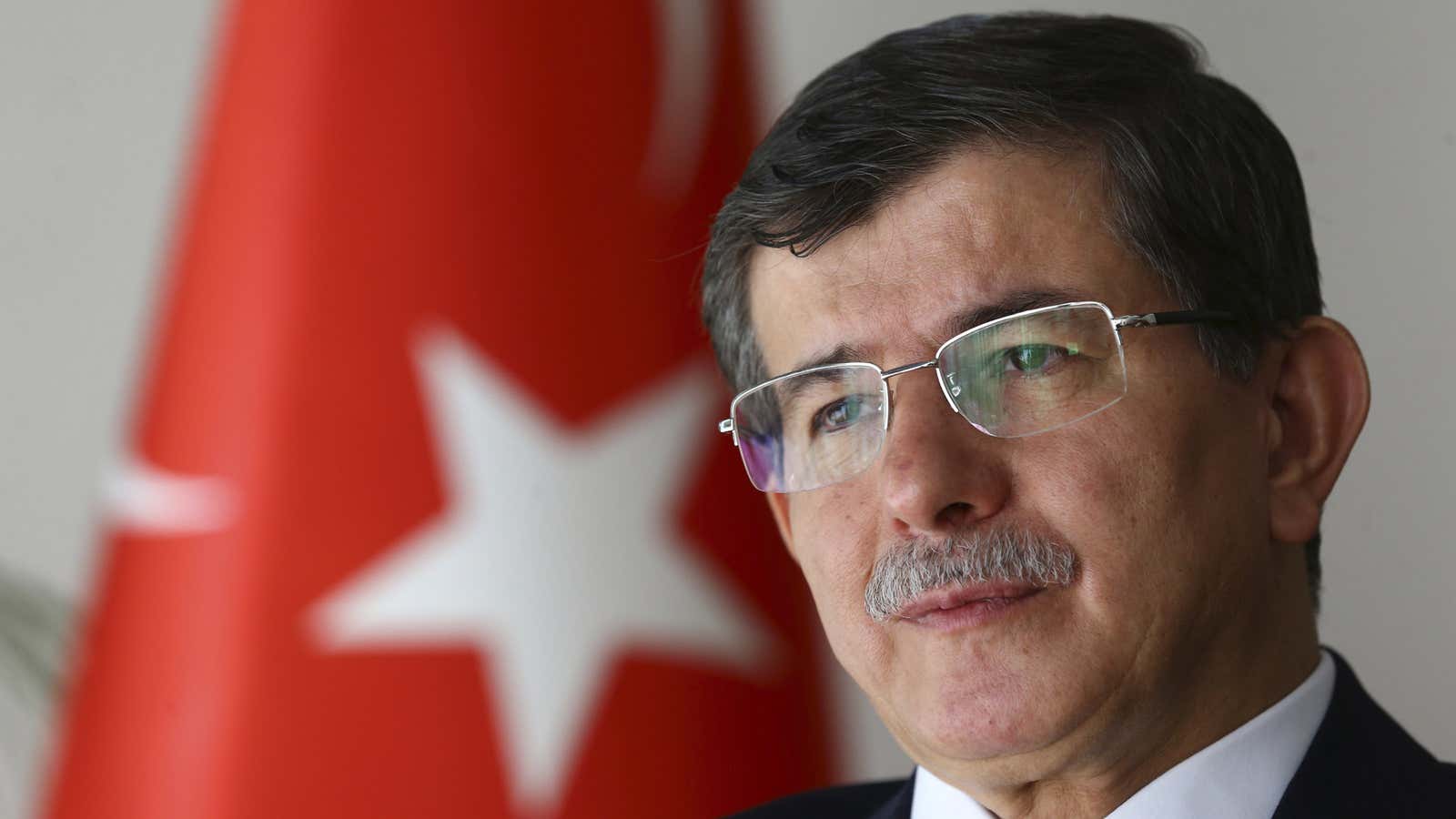Turkey’s president-elect Recep Tayyip Erdogan is a step closer to getting the prime minister he wants—Ahmet Davutoglu, his longtime foreign minister. The nomination demonstrates, if demonstration were needed, that Erdogan still pulls the strings in the ruling Justice and Development Party, known by its Turkish acronym, AKP.
Erdogan lacks the votes in parliament to obtain what he truly desires: new laws that give more power to the mostly ceremonial presidency. To get those votes, he’ll have to wait for the next scheduled parliamentary elections in June 2015, and hope his popularity doesn’t fade between now and then.
But the appointment of the long-loyal Davutoglu allows Erdogan to construct a new quasi-presidential system, in which Erdogan will at turns finesse and strongarm his policies into law.
“What he is going to do is use his personal authority to maximize his powers,” Bulent Aliriza, of the Center on Strategic and International Studies, told Quartz.
Davutoglu’s nomination must be ratified on Aug. 27 at an extraordinary congress of the AKP, but that is almost certain. This will give him, under the current constituition, greater executive power than the president—and, in theory, the ability to override Erdogan. But, lacking his boss’s political clout or charisma, and perhaps the desire to exercise such authority, it is likely Davutoglu will for the most part do Erdogan’s bidding.
In foreign policy, the two men will continue Turkey’s staunch support of Iraqi Kurdistan’s efforts to export oil without Baghdad’s permission—which many analysts see as a precursor to Kurdish independence. Erdogan’s backing has been central in the construction of a dedicated oil pipeline from Kurdistan to the Turkish port of Ceyhan, allowing the Kurds a source of income independent from Baghdad. The Kurds are having increasing success selling the oil internationally, confounding efforts by the US and Baghdad to stop them.
Turkey will also continue to support the opposition to Syrian leader Bashar al-Assad. But like the West, Erdogan will have to recalibrate his policy now that ISIL, the brutal terrorist army, seems as dangerous, or more so, than Assad.




